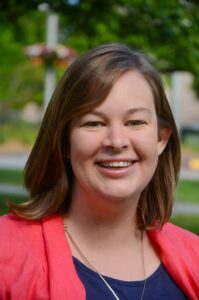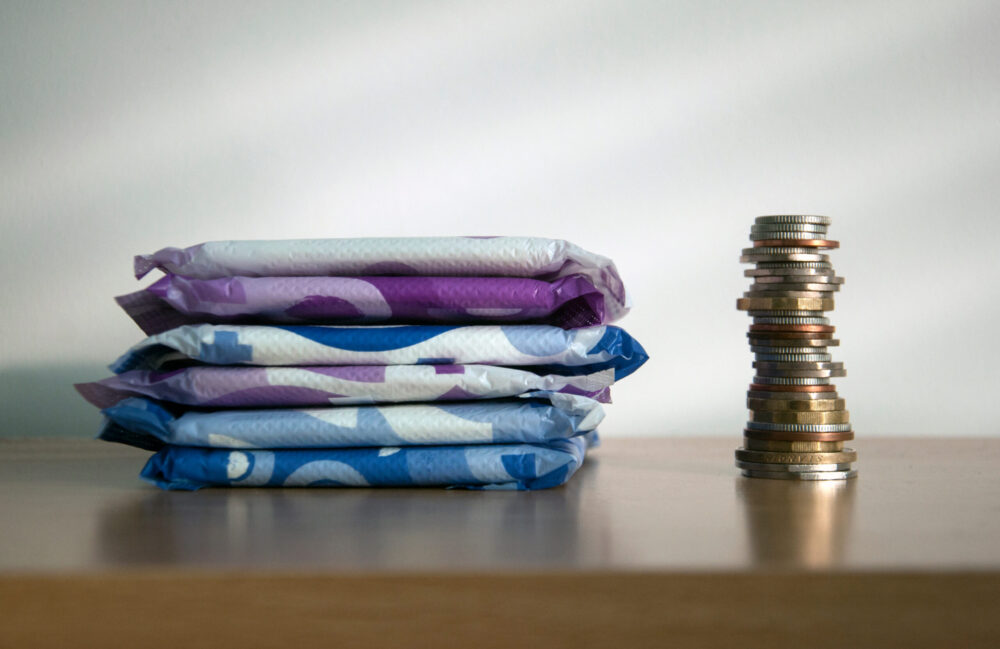A few days ago people in Canberra awoke to the news that the ACT could be the first jurisdiction in Australia to provide free sanitary products in places like health facilities, public toilets, schools and libraries. The ACT Council of Social Service (ACTCOSS) has been a key organisation researching and advocating in this area. Dr Gemma Killen and Dr Emma Campbell from the organisation share their insights.
For the first year after she began menstruating, Jess kept her period a secret from everyone, including her family. Not wanting anyone to know what was happening, she avoided tampons and pads. Instead, she fashioned menstrual products from scraps of fabric in her craft box and stolen from her mother and grandmother’s sewing stashes. She recalls using shoelaces to tie the ‘pads’ to her underwear and avoid embarrassing leaks. At the end of each day, she would hide the pads in the bottom of the bin.
For Jess, period stigma turned a normal physiological process into a stressful and shameful experience. When she finally told her mum she was menstruating, her family were kind and supportive, and able to provide her with the necessary products. Other families are not as privileged.
Period poverty is not only an issue impacting low-income countries. It affects many people in Canberra (and the rest of the country!) and manifests itself in various ways, including a lack of access to sanitary products, menstrual hygiene education, clean toilets, hand washing facilities or appropriate waste management. Not having access to these basic amenities compounds a sense of shame and keeps people from participating in school, work and social life.
Though research on period poverty is minimal, Period Pride’s recent ‘Bloody Big Survey’ showed that 15% of respondents in the ACT have been unable to afford period products at some point in their life. It is shocking that some members of the Canberra community are denied the basic dignity and hygiene afforded by the provision of period products.
More than a fifth of survey respondents reported improvising period products due to cost. For some people this means using toilet paper, newspaper or even old socks. Like Jess, many people who improvise these products feel a deep sense of shame about their periods.
Almost half of the survey respondents used products longer than recommended because they couldn’t afford to buy new ones. These practices put people at significant risk of developing toxic shock syndrome or pelvic inflammatory disease.
A recent report by Share the Dignity noted that educational achievement as well as emotional and mental health can be significantly impacted by period poverty. If they can’t afford the appropriate products, children and young people avoid school while on their periods.
For the ACT Council of Social Service (ACTCOSS), fixing period poverty is a key element of our work on social justice. Period poverty affects those most disadvantaged by the high costs of living in the ACT, as well as other people including those experiencing family violence. We also know that for those experiencing homelessness, a lack of a safe place to sleep also means a lack of access to clean, safe toilets and disposal facilities.
Our member organisations spend significant sums on providing basic hygiene items including period products to people on low incomes. An average menstruator could have more than 450 periods in their lifetime. If they are spending an average of $20 a month on period products, this amounts to approximately $10,000. This is an extraordinary amount of money for someone living on income support.

Suzanne.orr, CC BY-SA 4.0, via Wikimedia Commons
With the end of the Coronavirus Supplement earlier this year, income support payments now provide a mere $44 a day to cover job searches, as well as the basics of life including food, clothing, petrol, rent and essentials like period products. For some people, this means choosing between feeding their families and accessing appropriate and hygienic period care.
Last week, ACTCOSS welcomed the introduction of a Bill to help address period poverty and the stigma associated with periods in the ACT. The draft Bill, released by ACT Labor backbencher Suzanne Orr MLA, aims to ensure reasonable access to free period products at places of education and at ACT Government-run locations, such as libraries. Service providers will also be able to apply to be included in the scheme and receive ACT Government assistance to provide free-of-charge period products.
Menstrual information and educational resources will also be provided in public schools and ACT Government-run locations. This will help to reduce the social stigma associated with periods and period poverty that keep people from participating in school, work or social life and enable us to talk about periods about their relevance to all aspects of life.
We need to ensure that everyone who menstruates has free and ongoing access to period products as well as clean and sanitary public toilets in which to use them.






